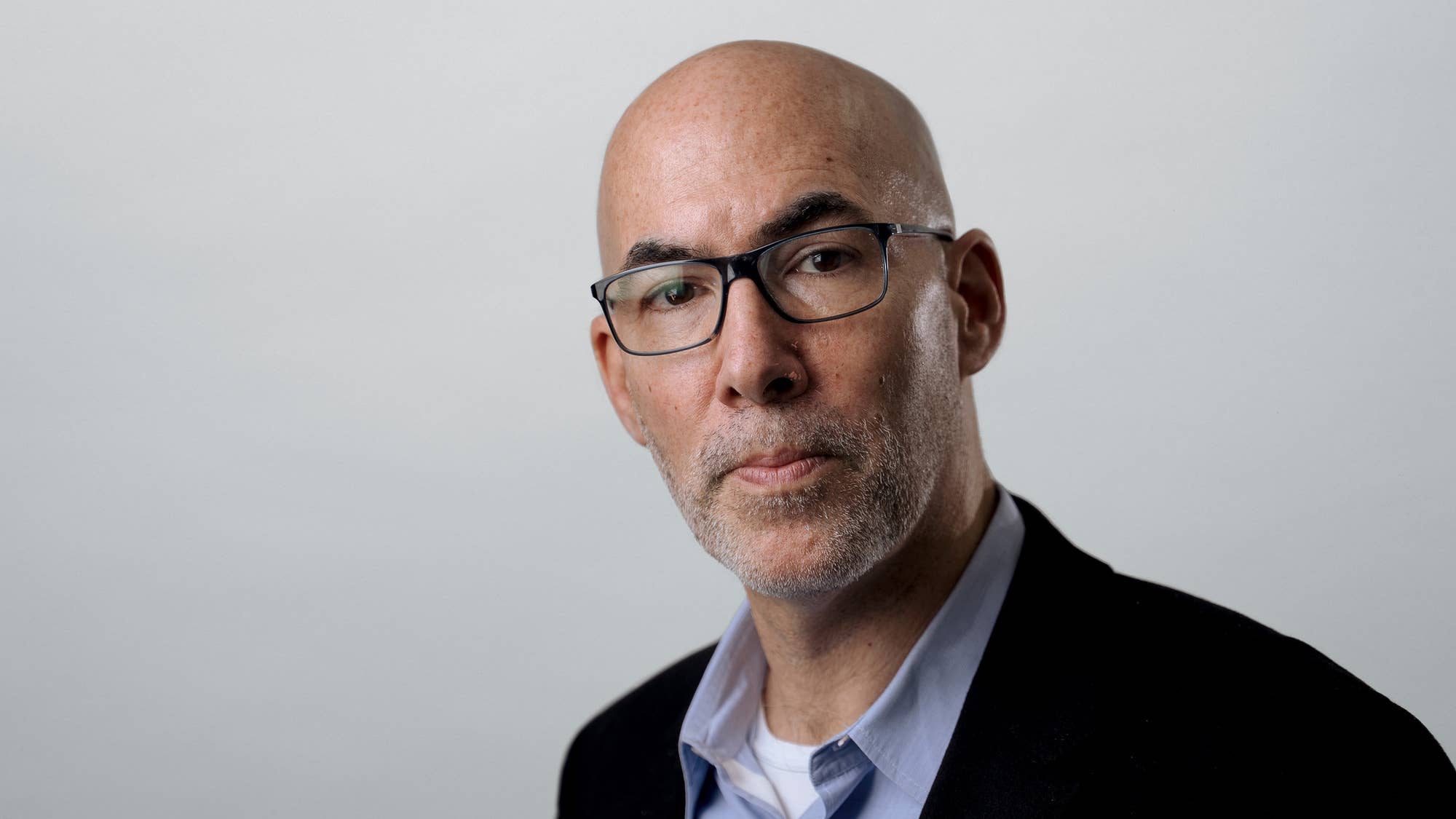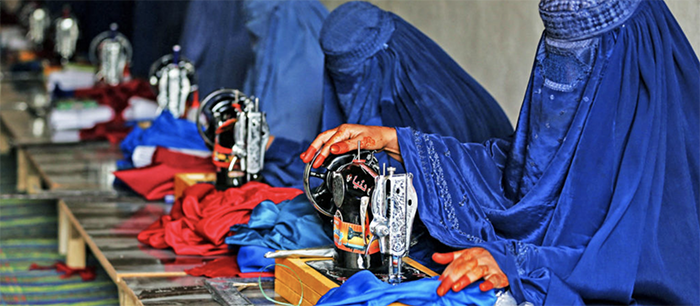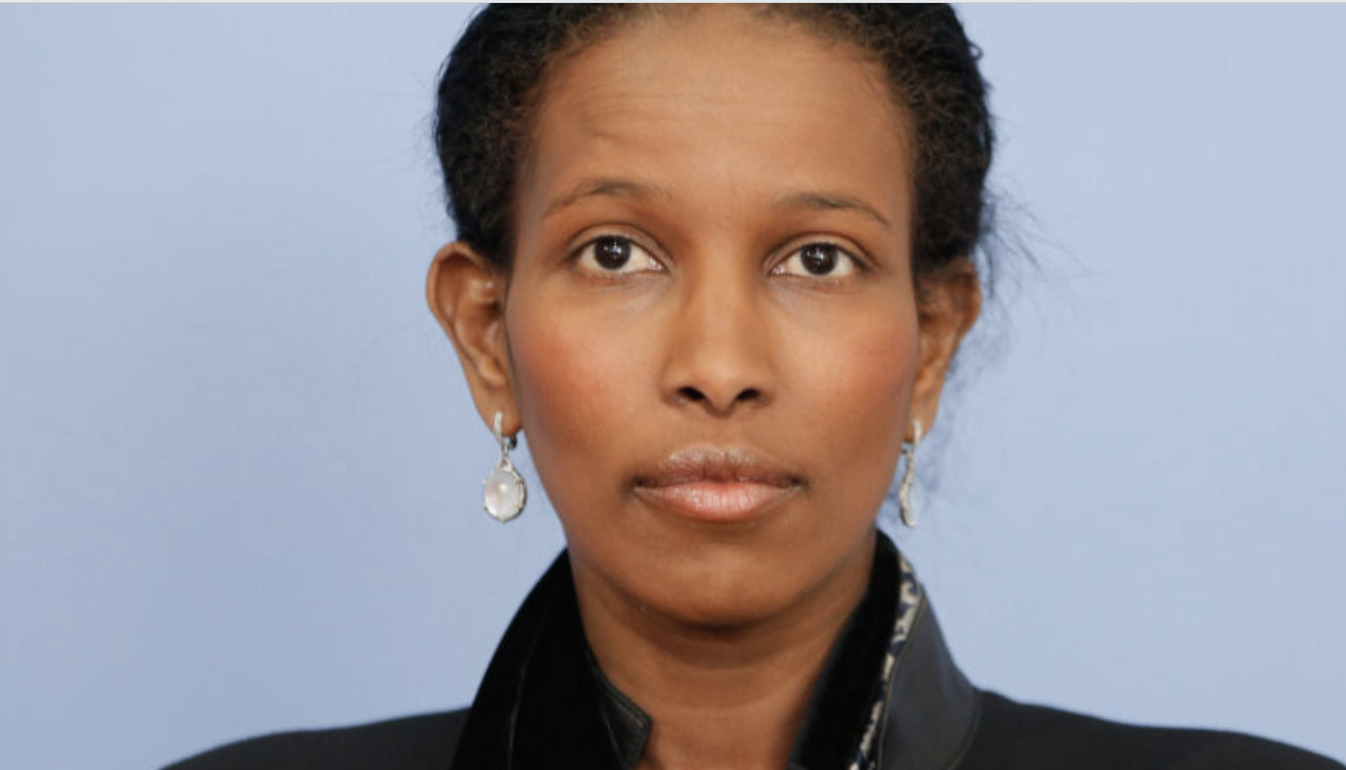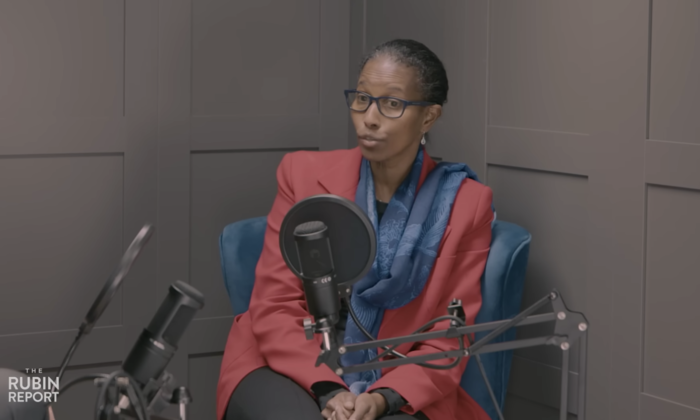If 2022 has been the year of the “woman”, it is a tale with two different final chapters: one hopeful, one less so. The first is set in a distant country, where an archaic, theocratic regime threatens to be toppled by women throwing down their hijabs and demanding their emancipation. The second plays out in a more familiar setting but in an unfamiliar language; a Western nation where the word “woman” itself no longer has any meaning, its definition rewritten to include “an adult who lives and identifies as female though they may have been said to have a different sex at birth”.
This is the paradox of the past 12 months: the existence of women is being questioned in the very place where female emancipation has come furthest, while in places where women remain shackled to medieval notions of honour and chastity, true feminism is at its strongest.
Why should we worry about dictionary definitions, when everyone knows what a woman is anyway? This may seem like a fair question. Yet simply dismissing the erasure of a word as a “culture war issue” misunderstands the forces that drive it. As Helen Pluckrose and James Lindsay noted in their 2020 book Cynical Theories, language is now viewed as a tool of oppression, and thus must be altered in the name of so-called “liberation”. These arguments over the word “woman”, then, have wider repercussions: they are fronts in a greater war that will determine how language itself is used.
Those who would divorce “woman” from its biological implications often present their ideas as innocuous. They are, we are told, simply champions of “inclusion”. But their ideology is hardly uncontroversial, and surrendering to it is not harmless. The past year has seen reports of transgender women attacking women in female-only spaces and unfairly winning trophies in women’s sports. The spirit of these failures was perhaps best-distilled in the words of Supreme Court Justice Ketanji Brown Jackson, who in March was unable to define what being a woman entailed during her Senate confirmation hearing. “I’m not a biologist,” she said, as if one needed to be a professional scientist to know basic biological facts.
A word of clarification. I am immensely sympathetic to the plight of transgender people and believe they ought to have the same moral and legal rights as everyone else. To be against militant trans activists’ gender ideology is not to be transphobic. Rather, it is simply to agree, as Chimamanda Ngozi Adichie succinctly put it, that “trans women are trans women”. Adichie was savaged for this and other statements evincing wrongthink, but acknowledging that trans women are distinct from women, that there are potential conflicts between their rights, and that gender ideology opens the door to abusive men masquerading as women, should not be controversial. Standing up for the rights of transgender people should not mean pretending sex does not exist altogether.
Indulging in this fantasy can have perverse, and dangerous, repercussions — both at home and abroad. Here in the West, it culminates in a myopic worldview which holds that a bestselling author (and domestic abuse survivor) should be trolled for funding a women-only service for victims of sexual abuse. Elsewhere in the world, the erosion of our understanding of what it means to be a “woman” has more immediate consequences.
Consider what has taken place in Kenya, Iran and Afghanistan in just the past two months. In Kenya, while women in America debated what we should call a person born with a cervix, FGM has taken a new and insidious form. In Iran, the female-led protests that followed the death of Mahsa Amini, a 22-year-old Kurdish Iranian woman who was arrested for breaking mandatory dress code laws, have been met with an equally inhumane response. Reports abound of Iran’s security services raping protestors and shooting at the faces and genitals of female protesters. And in Afghanistan, the Taliban government reintroduced Sharia Law, meaning women are now barred from walking outside without a male relative and must cover up with a burqa or hijab when outside the home. Earlier this month, a woman was publicly flogged for entering a shop without a male guardian. Last week, the Taliban banned women from studying at university.
Is it really a coincidence that, in the same year the West forgot what it means to be a woman, we decided it was acceptable to turn our backs on women in those countries? The above is what happens when a society stops caring what it means to be a woman; when a centuries-old fight for emancipation becomes relegated to semantics. Of course, this takes a different form in Kenya, Iran and Afghanistan. But there still seem to me to be similarities between today’s gender activists and theocratic subjugators. Both believe, on the basis of a contentious ideology, that they have a monopoly on truth. And both, in a sense, are champions of the subjective over the objective: in one case, particular religious beliefs are said to tell us how society should be run — and in the other, mere feelings are said to abolish material reality.
This is why gender ideology advocates are a threat not just to women but to Western ideals, too. Western culture prides itself on the achievements of the Enlightenment and science — in other words, on objectivity. It was on an objective basis that previous generations of feminists staked their claim: their plight was based on an appeal to reason. Now, so-called “progressives” — another term that has been redefined into meaninglessness — stake their claim on subjective feelings and happily ignore or dismiss its material effects.
The effects of this are slowly taking shape. In the Seventies, the anti-Shah Iranians threw in their lot with the ayatollahs in the delusional hope that the ayatollahs would share power after the revolution. They learned very quickly that fanatics cannot be trusted or restrained. Similarly, many Western feminists ended up allying themselves with progressivism, and now far too many women have felt the terrible consequences of that alliance. If the spirit of true feminism is to be reclaimed, we need more JK Rowlings and fewer Ketanji Brown Jacksons.
It is not just feminism and the rights of women that are at stake here: so, too, are the best ideals of the West itself. If 2022 is the year of the “woman”, let’s hope 2023 will be the year when we can delete those quotation marks.







